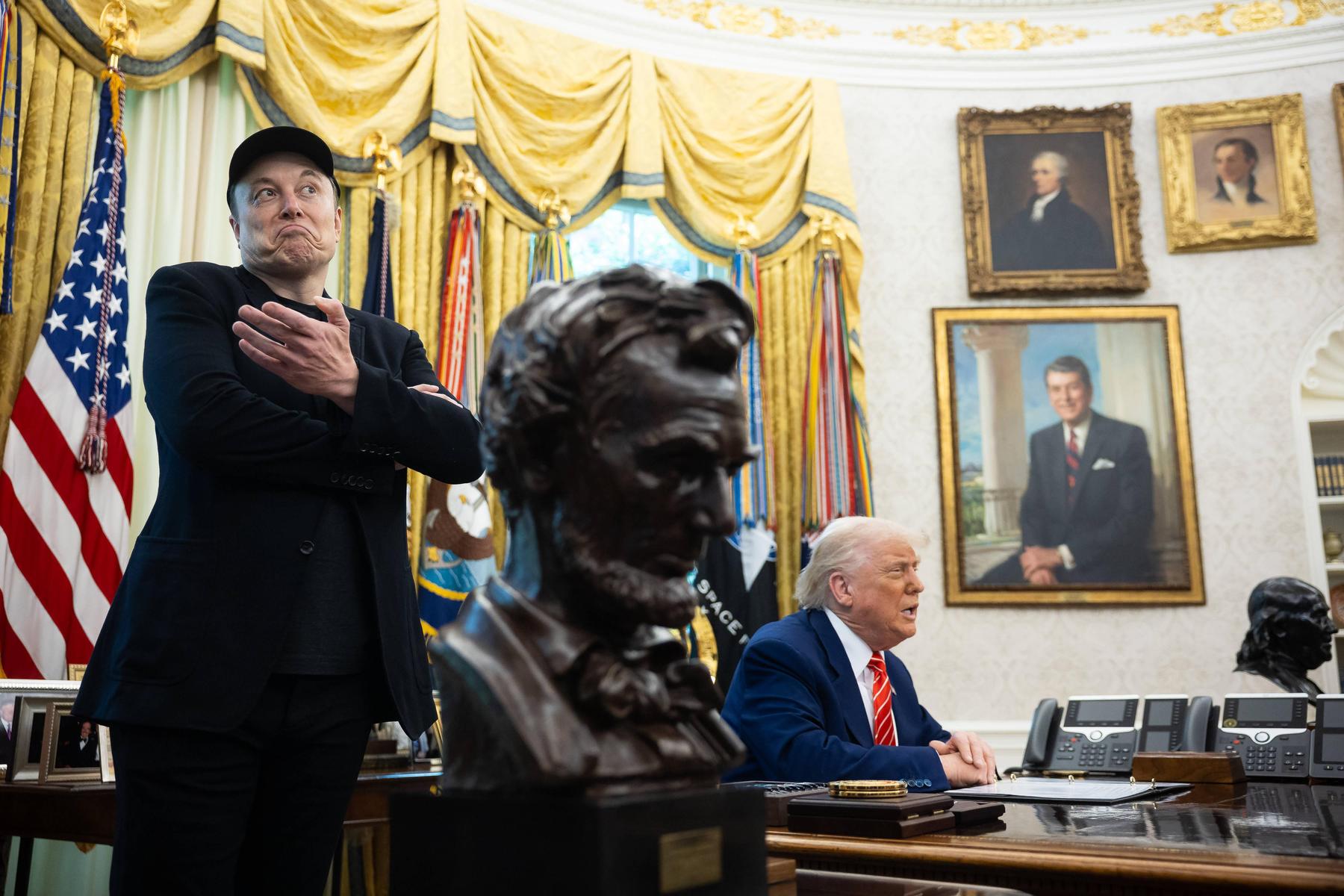The arrival of a Chinese 'Mega-Ambassade' evokes resistance in London: is this the good geopolitical signal?
/s3/static.nrc.nl/images/gn4/stripped/data128222049-387d36.jpg|https://images.nrc.nl/xS-9zF9i-TxAhVm1lTx6cxKpqus=/1920x/filters:no_upscale()/s3/static.nrc.nl/images/gn4/stripped/data128222049-387d36.jpg|https://images.nrc.nl/ghR-ArMC_A6Y0xpNZohq1By4nOU=/5760x/filters:no_upscale()/s3/static.nrc.nl/images/gn4/stripped/data128222049-387d36.jpg)
The place where the new embassy of China has to come has a clear view of the historic complex of the Tower of London and behind it the Tower Bridge over the Thames. Tourists walk along with the Google Maps app open on their phone, Londoners bikes in a hurry towards the bridge.
Here in the heart of London, China wants to build the largest embassy in all of Europe, a complex that should become ten times as large as their current embassy in the United Kingdom. They have plans for a campus with a visitor center about cultural heritage, a large building for exhibitions and conferences, plus about two hundred apartments for embassy staff.
But the arrival of that embassy is controversial. The objections of stakeholders vary from traffic nuisance that would cause demonstrations to the door, to the fear that China would try to crack the internet cables and data centers that are close to the complex. There is a public investigation into all practical risks and objections to the plans. Questions that come by about how many protesters on the street would fit for the embassy until how good the security against terrorist attacks is, a fear of residents from the neighborhood.
This plays a more fundamental discussion, which is about the geopolitical signal that is based on an impressive embassy at such a strategic location. And whether the United Kingdom should allow something like that, especially now that tensions are going further between China and the United States, and to a lesser extent between China and the European Union. The embassy also gives birth to the China committee of the American House of Representatives 'significant concerns', this week was on X. « From interference and supervision to risks for sensitive infrastructure, such as the London financial services. »
Peaceful protest
« It is about whether the British are willing to facilitate the authoritarian influence of China, » said Simon Cheng during one of the hearings. He is an activist who fled from Hong Kong to the UK after China had introduced a law there in 2020 that makes peaceful protest almost impossible. « This mega-ambassade makes China better able to follow and intimidate its enemies. We show ourselves here because critical voices are silenced in Tibet, Hong Kong and Beijing, « he said. In demonstrations against the embassy, hundreds of Hong Kongers fleeing in recent weeks to express their objections.
Fear of China's 'long arm' is not out of the blue. During a demonstration against the oppression in Hong Kong in 2022, a man was pulled onto the site at the Consulate in Manchester. Shortly thereafter, in several places in the country, including in Glasgow, Hendon and Croydon, Chinese 'administrative centers' also turned out to work Chinese police officers. The British police did not establish any illegal activities. But those agencies were established without permission. « And their presence will have caused and intimidated those who left China and sought security and freedom here. That is unacceptable, « wrote the then State Secretary for Safety at the Lower House. The centers were closed.
Over the past few years, conservative governments have been suspiciously opposed to China. In 2023, then Prime Minister Rishi Sunak (conservative party) called China « the largest long -term threat for the UK, » because the country has « the means and intention to change the world order. » The conservatives also deliberately did not intervene when in 2022 the drivers of the district where the new embassy should be placed, the renovation plans rejected. During the protests earlier this month, several tories came to show their support to the demonstrators.
At Labor they see it differently. For an official position, waiting for an analysis by the government is still, because LaFour had promised a screening of the correct setup towards Beijing last year in the election program. But it is clear that Labor wants to do business with China. The government wants to do everything to stimulate the British economy. Deputy Prime Minister Angela Rayner and Minister of Finance Rachel Reeves have both already visited Beijing. Prime Minister Keir Starmer is planning that next fall; He would be the first British prime minister in seven years.
Objections
The Thames sees the complex of existing buildings that China wants to convert into embassy now leaves and expired, even though some of the historic buildings on the site are registered as a rural heritage.
A few weeks after the change of power in Westminster last year, China again submitted the permit application for the embassy and that was well estimated. President Xi Jinping also raised the subject in his first telephone conversation with Prime Minister Starmer. He didn't leave it at that. At the beginning of this year it turned out that Deputy Prime Minister Rayner, she was also a minister of Housing, had drawn the decision -making authority over the permit, over the local government layers. Shortly after that announcement, the London police suddenly raised her objections about the demonstration masses. The city district, which had largely based his criticism on the police, could then also change little other than to change their position.
The government would like a few adjustments to the complex, for example a larger – safer – fence around. China should also give up the diplomatic permits of a handful of other buildings in London. But during the hearings of the public investigation, it turned out that the Chinese representatives saw nothing in those requests.
For example, the diplomatic arm will continue for a while. The recommendations of the investigation go to Deputy Prime Minister Rayner. She expects to decide in the fall whether the embassy is coming.

:format(webp)/s3/static.nrc.nl/wp-content/uploads/2025/05/28152030/web-2805BUI_Zelensky-1.jpg)
:format(webp)/s3/static.nrc.nl/images/gn4/stripped/data117919433-a8d64a.jpg)
/s3/static.nrc.nl/images/gn4/stripped/data133263782-60629b.jpg|https://images.nrc.nl/ObMGtxqYQVWbhiZzE5hgLR8QVFI=/1920x/filters:no_upscale()/s3/static.nrc.nl/images/gn4/stripped/data133263782-60629b.jpg|https://images.nrc.nl/kTnEqay5eOnpwdU_TsyAFJv6zVE=/5760x/filters:no_upscale()/s3/static.nrc.nl/images/gn4/stripped/data133263782-60629b.jpg)




